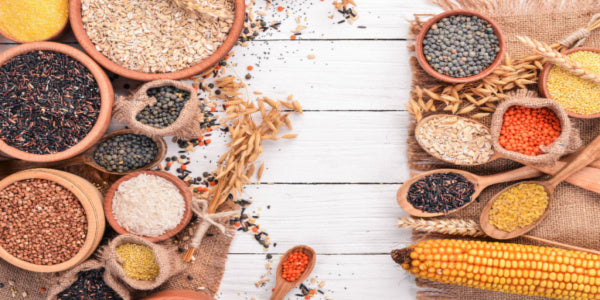
Lectins have recently been linked to many major diseases. You may be wondering, “What is a lectin-free diet?” or whether going on a lectin-free diet is worth it. Find out if the low lectin diet is for you.
Read on for reasons people go on lectin-free diets, and what diet experts have to say about the lectins.
What Is a Lectin-Free Diet?
Understanding the lectin-free diet starts with knowing what lectins are. Lectins, also called hemagglutinins, are a type of protein that binds to carbohydrates.
When found in nature, they protect plants. When found in food, humans may find digesting lectin protein particles difficult.
Lectins are still being studied, but they may be linked to the following symptoms:
• Bloating
• Diarrhea
• Gas
• Nausea
• Stomach discomfort
• Vomiting
Preliminary studies have shown that lectins may hinder nutrient absorption in some people. This means that for certain individuals, lectins may make it harder to get minerals and vitamins. Luckily, the body produces some enzymes that help to break down lectins during digestion.
Reasons To Go On A Lectin-Free Diet
Working with a Registered Dietitian and your healthcare team closely, you may be advised to avoid lectin-filled foods for your health. It’s crucial to work closely with your healthcare team because everyone has a different reaction to lectins.
Like gluten or dairy, you want to make sure lectins are causing an adverse reaction before you cut them out of your diet. Foods that contain lectins often supply antioxidants, vitamins, fiber, and other nutrients offering countless health benefits. So unless advised by healthcare professionals, avoiding them may not be helpful and could lead to nutrient deficiencies.
While there is no definitive research that directly links eliminating lectins to alleviating disorders, there is some anecdotal evidence that supports lowering lectins for symptom relief. In particular, those with autoimmune diseases, like rheumatoid arthritis, may find lowering lectin levels helpful. Again, this should be done under the care of a qualified doctor and dietitian.
When in doubt, you can lower levels of raw lectins in your diet. Avoid eating larger quantities of lectins or break them down through the cooking or heating process.
Low Lectin Diet Tips
It is important to note that high levels of active, potent lectins are found in certain raw foods. Additionally, these foods are not usually eaten raw but rather heated during the cooking process. For example, raw beans (some of which are high in lectin) are soaked in water, rinsed, and heated prior to eating which disables the lectins and makes them less potent.
If you do decide to eat lectin-free foods, plan on avoiding the following items that are higher in lectin levels:
• Beans
• Eggplant
• Legumes
• Lentils
• Nuts (i.e. peanuts)
• Potatoes
• Tomatoes
• Wheat or whole Grains
Foods lower in lectin levels include:
• Cooked foods (i.e. sweet potatoes)
• Cruciferous foods (i.e. broccoli, Brussels sprouts)
• Fruits and vegetables (i.e. avocado, asparagus, celery, leafy greens, onions)
• Garlic
• Mushrooms
• Pasture-raised meats
The Last Word on Lectin-Free Diets
While lectins found in nature protect plants, lectins found in food may be hard to break down in the body. Working with a dietitian and healthcare team, you can find out if lectins are causing digestive problems. When in doubt, expose foods high in lectin to heat to help break lectins down.
References:
Horton B. What Is The Lectin-Free Diet? EatingWell. Published July 2020. https://www.eatingwell.com/article/7827647/what-is-the-lectin-free-diet/.
Lectins. The Nutrition Source. https://www.hsph.harvard.edu/nutritionsource/anti-nutrients/lectins/.
Torborg L. Mayo Clinic Q and A: What are dietary lectins and should you avoid eating them? Published September 2018. Mayo Clinic. https://newsnetwork.mayoclinic.org/discussion/mayo-clinic-q-and-a-what-are-dietary-lectins-and-should-you-avoid-eating-them/.







